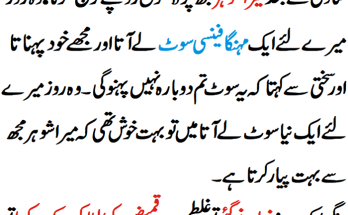Bone health is foundational to overall well-being, and the strength and structure of our bones are influenced by more than just physical activity. Nutrients like vitamins and minerals play a critical role in bone development, maintenance, and protection. These nutrients not only help keep bones strong but also reduce the risk of osteoporosis, a condition where bones become fragile and prone to fractures. In this article, we’ll explore the essential vitamins and minerals that are key to maintaining optimal bone health and preventing osteoporosis.




What is Osteoporosis?
Osteoporosis is a condition that weakens bones, making them more fragile and susceptible to fractures. It occurs when the body loses too much bone mass or fails to create enough new bone tissue. As a result, bones become porous and brittle. The most common sites for fractures in people with osteoporosis are the spine, hips, and wrists.
The condition develops slowly over many years and often doesn’t show symptoms until a bone breaks. Osteoporosis affects millions of people worldwide, especially postmenopausal women and older adults. One of the most important factors in the development of osteoporosis is a lack of sufficient bone density, which can be influenced by both genetics and lifestyle factors, such as diet and physical activity.
Key Vitamins and Minerals for Bone Health
Vitamins and minerals are crucial for the maintenance of strong bones. They help with the formation of bone tissue, support bone density, and aid in the proper functioning of cells involved in bone remodeling. Let’s take a closer look at the key nutrients that play a role in bone health.
1. Calcium: The Cornerstone of Bone Health
Calcium is the most abundant mineral in the human body, with approximately 99% of it stored in the bones and teeth. It is essential for the development and maintenance of bone strength. Calcium helps maintain bone density and supports normal muscle and nerve function. A deficiency in calcium can lead to weakened bones and an increased risk of fractures.
Recommended Daily Intake of Calcium:
- Adults aged 19-50: 1,000 mg
- Women over 50 and men over 70: 1,200 mg
Calcium-Rich Foods:
- Dairy products (milk, yogurt, cheese)
- Leafy green vegetables (kale, broccoli, collard greens)
- Fortified plant-based milk (soy, almond, oat milk)
- Tofu and tempeh
- Canned fish with bones (salmon, sardines)
- Fortified cereals
2. Vitamin D: The Bone-Boosting Vitamin
Vitamin D is crucial for bone health because it helps the body absorb calcium from food. Without adequate vitamin D, the body cannot utilize calcium efficiently, leading to weak bones. Vitamin D also plays a role in bone remodeling, the ongoing process where old bone is replaced with new bone tissue.
The body produces vitamin D when the skin is exposed to sunlight, but it can also be obtained through food and supplements. Vitamin D deficiency is common, particularly in individuals who have limited sun exposure or live in northern climates with long winters.
Recommended Daily Intake of Vitamin D:
- Adults aged 19-70: 600 IU
- Adults over 70: 800 IU
Vitamin D-Rich Foods:
- Fatty fish (salmon, mackerel, sardines)
- Fortified foods (milk, orange juice, cereals)
- Egg yolks
- Beef liver
- Mushrooms exposed to sunlight
3. Magnesium: Supporting Bone Mineralization
Magnesium plays an essential role in bone health by contributing to the formation of bone matrix and aiding in the regulation of calcium and vitamin D. Magnesium is involved in more than 300 biochemical reactions in the body and supports muscle and nerve function. It also helps in the conversion of vitamin D into its active form, which is necessary for calcium absorption.
A deficiency in magnesium can lead to low bone mineral density and an increased risk of fractures.
Recommended Daily Intake of Magnesium:
- Men aged 19-30: 400 mg
- Men aged 31 and older: 420 mg
- Women aged 19-30: 310 mg
- Women aged 31 and older: 320 mg
Magnesium-Rich Foods:
- Nuts and seeds (almonds, cashews, pumpkin seeds)
- Leafy green vegetables (spinach, Swiss chard)
- Whole grains (brown rice, quinoa, oats)
- Legumes (black beans, chickpeas)
- Dark chocolate (70% or higher cocoa)
4. Vitamin K: A Key Factor in Bone Mineralization
Vitamin K is essential for the synthesis of osteocalcin, a protein involved in bone mineralization. This vitamin helps bones absorb and retain calcium, ensuring proper bone formation. While vitamin K is often associated with blood clotting, it also plays a significant role in maintaining bone density and preventing fractures.
There are two main types of vitamin K:
- Vitamin K1 (phylloquinone), found in leafy greens
- Vitamin K2 (menaquinone), found in animal products and fermented foods
Recommended Daily Intake of Vitamin K:
- Men: 120 mcg
- Women: 90 mcg
Vitamin K-Rich Foods:
- Leafy greens (kale, spinach, collard greens)
- Cruciferous vegetables (broccoli, Brussels sprouts)
- Fermented foods (natto, sauerkraut)
- Meat (chicken, beef liver)
- Eggs
5. Vitamin C: Promoting Collagen and Bone Strength
Vitamin C is crucial for the synthesis of collagen, a protein that helps form the structure of bones, cartilage, and tendons. It also acts as an antioxidant, protecting bone cells from oxidative damage. Collagen is a major component of the bone matrix, and its production is essential for bone growth and repair.
Vitamin C also aids in the absorption of iron and supports the immune system, both of which are important for overall health.
Recommended Daily Intake of Vitamin C:
- Men: 90 mg
- Women: 75 mg
Vitamin C-Rich Foods:
- Citrus fruits (oranges, lemons, grapefruits)
- Berries (strawberries, blueberries, raspberries)
- Kiwi
- Bell peppers
- Tomatoes
- Broccoli
6. Zinc: A Mineral for Bone Healing
Zinc is essential for the formation of bone tissue and for bone remodeling. It helps regulate osteoblast activity, the cells responsible for building new bone. Zinc also plays a role in the healing of fractures and is involved in maintaining the overall strength of the skeletal system.
A deficiency in zinc can impair bone growth and repair, leading to weakened bones and an increased risk of osteoporosis.
Recommended Daily Intake of Zinc:
- Men: 11 mg
- Women: 8 mg
Zinc-Rich Foods:
- Meat (beef, lamb, chicken)
- Shellfish (oysters, crab)
- Legumes (chickpeas, lentils, beans)
- Seeds (pumpkin seeds, sesame seeds)
- Nuts (cashews, almonds)
How to Ensure Adequate Intake of Vitamins and Minerals
The key to promoting bone health and preventing osteoporosis is a balanced diet rich in the vitamins and minerals mentioned above. While supplements are available, it’s always best to obtain nutrients from whole foods because they provide additional compounds and fiber that enhance absorption and overall health.
- Eat a Balanced Diet: Include a variety of fruits, vegetables, lean proteins, dairy (or dairy alternatives), and whole grains to ensure you’re getting the full spectrum of nutrients.
- Consider Supplements When Necessary: If you have dietary restrictions or cannot meet your nutrient needs through food alone, talk to your healthcare provider about taking supplements.
- Get Regular Exercise: Weight-bearing activities like walking, strength training, and dancing can help maintain bone density.
- Monitor Your Bone Health: Regular bone density tests (DEXA scans) can help track bone health and detect early signs of osteoporosis.
Conclusion
Vitamins and minerals are crucial in maintaining strong bones and preventing osteoporosis. Calcium, vitamin D, magnesium, vitamin K, vitamin C, and zinc all play unique and complementary roles in promoting bone health. A deficiency in any of these nutrients can lead to bone loss, increased fracture risk, and other health problems. By maintaining a well-balanced diet rich in these nutrients, engaging in regular physical activity, and getting appropriate medical guidance, you can protect your bones and reduce the risk of osteoporosis, ensuring a healthier, more active life as you age.


